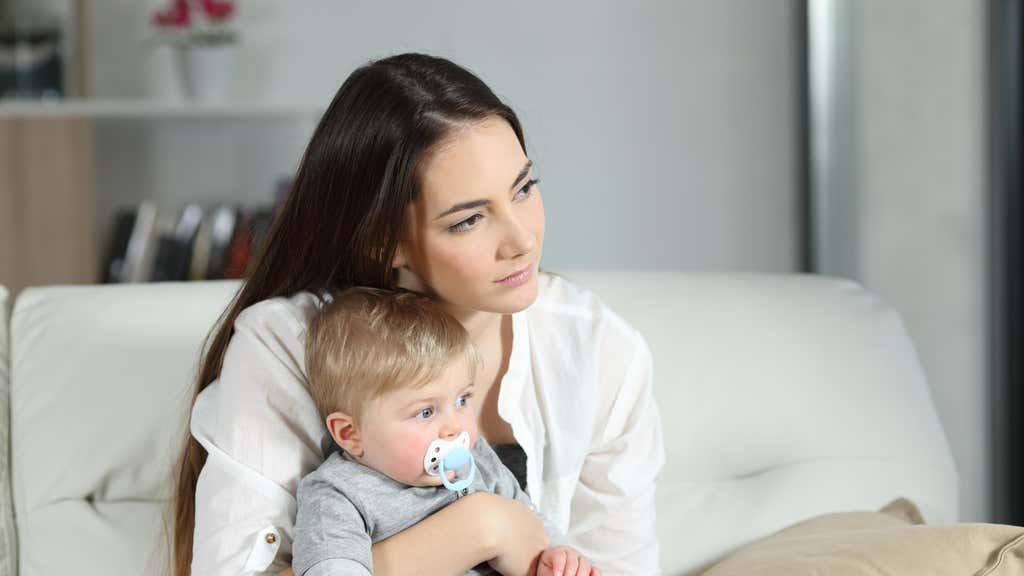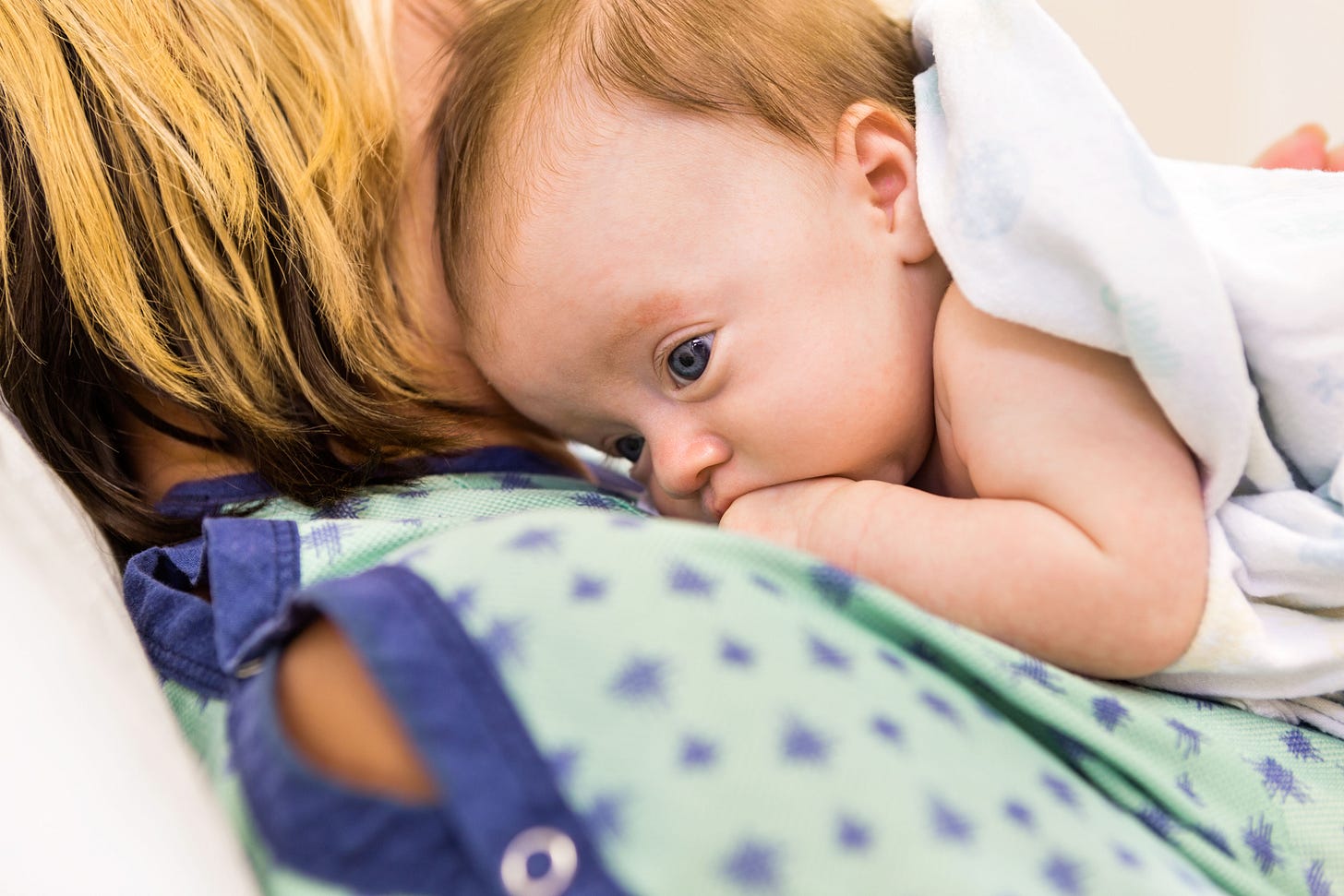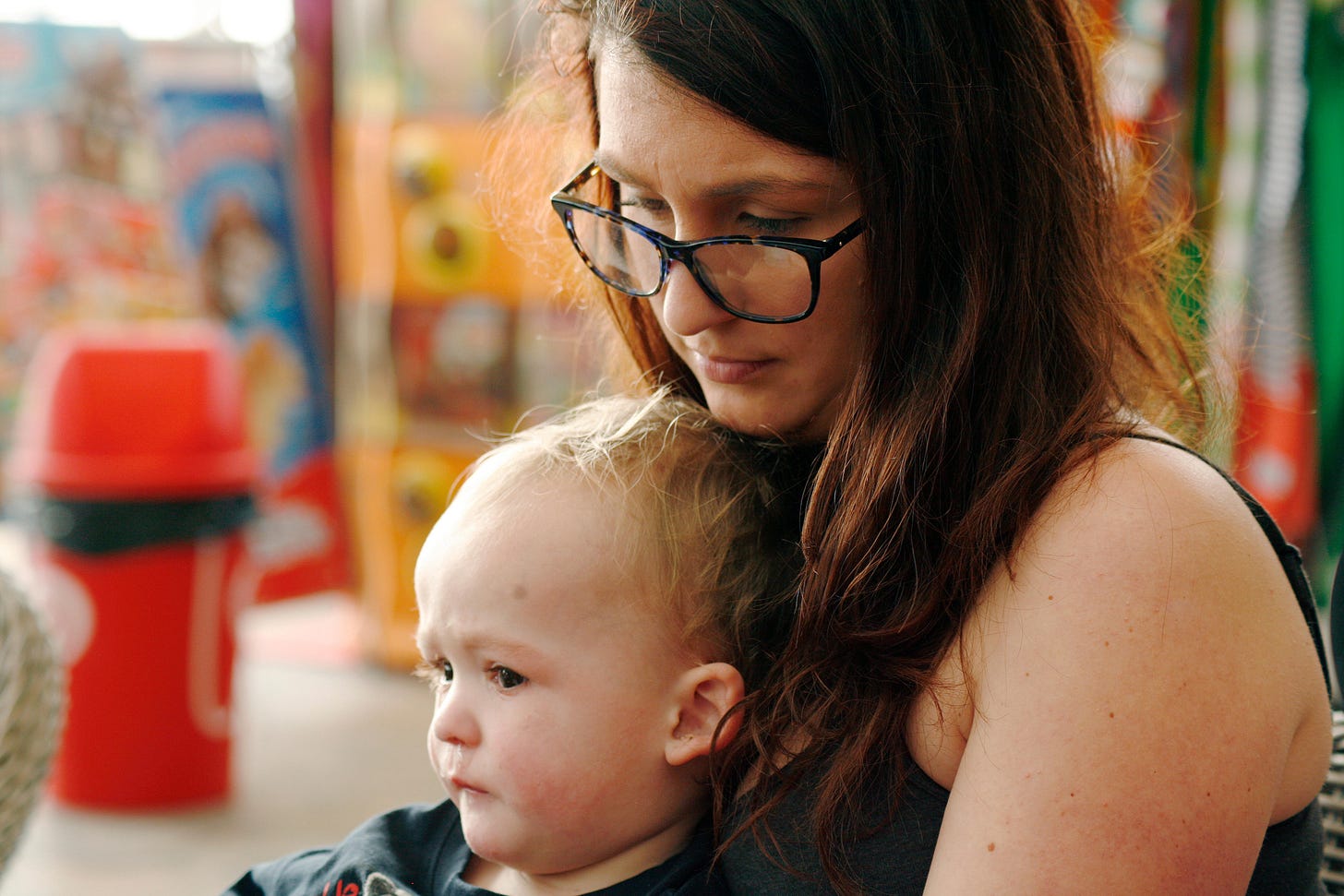Signs of postpartum psychosis in new mothers – and how to help
The sudden-onset illness can also present in mothers who have no previous mental health history.
Each year, up to 1200 new mothers suffer from postpartum psychosis, a new study suggests.
According to data from the Royal College of Psychiatrists, based on births registered in 2022, the condition affects between 600 and 1200 women annually.
So, what exactly is postpartum psychosis, and how can you spot the signs that someone is suffering with it?
Sudden and severe onset
Sometimes referred to as puerperal psychosis or postnatal psychosis, postpartum psychosis is a mental illness that happens right after giving birth.
“[It] is a sudden onset, serious mental health illness that presents in the immediate postnatal period, usually within two weeks after giving birth. However, there are cases where it can go undetected for several weeks,” says Sarah Oliver, a therapeutic practitioner at the For Baby’s Sake Trust.
This is because it may be mistaken for “baby blues”. But, as Oliver adds: “It is a serious medical emergency and requires prompt treatment. It affects around one in every 1000 mothers and although there are some factors, such as family history and previous mental health history that increase risk, it can also present in mothers who have no previous mental health history.”
What are the symptoms?
Oliver says symptoms can vary from mother to mother but can generally be defined by sudden onset severe depression, often accompanied by elevated mood, hypomania and manic episodes.
“This differs from postnatal depression as the mood ‘swings’ and there can be rapid changes in mood,” she explains. “The mother can present as being in a very high mood, feeling great and on top of the world and very excitable. It may present as having brilliant and exciting thoughts, rapid speech and lots of energy and zest for life, and then within the next hour the mother could present as tearful, with low mood, and withdrawing, isolating and not talking at all. Tearfulness and inconsolable sadness may feature in the periods of low mood.”
Delusions and hallucinations
Delusions and hallucinations are a feature of postpartum psychosis, and someone affected may have unusual beliefs that are unlikely to be true – such as believing they are a celebrity, that they’ve won the lottery, or that supernatural things are happening, Oliver adds.
“This can sometimes involve the baby, such as believing an evil spirit possesses the baby, that they have harmed the baby in some way, or believe the baby is not theirs,” she continues.
“They may also hear voices, see apparitions and visions, smell weird things that aren’t there, have strange bodily sensations and feel things that are not there. Paranoia can feature and mothers can become very suspicious and fearful of people they normally trust, and conversely place their trust in inappropriate people or strangers.”
Lack of sleep
Sleep is also affected by postpartum psychosis, possibly causing someone to struggle to sleep even when tired, or feeling like they don’t need any sleep at all.
“Sleep deprivation adds to the inevitable confusion and the struggle the mother feels when trying to focus and concentrate,” says Oliver. “Severe confusion is also a symptom. This could present as incoherent and racing thoughts, inarticulate speech and being very agitated, unable to sit still, pacing and the fear of being ‘trapped’ and an urge to seek escape.”
Personality changes
According to Oliver, personality changes are also a symptom. A new mother with postpartum psychosis may come across as a completely different person to the person their loved ones know and recognise, inhibitions may be lowered, and they may do things they’d never usually do.
“There may be a perceived increase in confidence that is also out of character, with mothers being more talkative and sociable than usual. For the mother, this can feel surreal, as if they are living in a dream world, which only adds to the confusion. The mother will probably be unaware of how she is acting and feeling and may not recognise she needs support and medical help.
How can mothers with postpartum psychosis be supported?
For anyone affected, this is undoubtedly a perplexing and fearful experience. However, with rapid emergency care, postpartum psychosis can have a very good prognosis with the worst symptoms being resolved within two to four weeks.
“Friends and family are integral to timely emergency care, as they may notice unusual symptoms and [someone seeming] out of character more keenly than professionals, who may not know the mother well enough to make these kinds of observations,” says Oliver.
“Mothers are usually admitted to specialist mother and baby units, where they can receive the expert care they need whilst remaining with their babies. They can be supported with continuing to breastfeed and can receive guidance on which medications to resolve the psychosis are compatible with continued breastfeeding.
“If they cannot breastfeed in this period, they can be supported to return to breastfeeding when appropriate. Treatment must always take priority, so that the mother can recover, and it is imperative she is constantly reassured and informed that the psychosis and anything that results from the psychosis is not her fault in any way,” Oliver continues.
“They can be supported in the unit and subsequently in the community with bonding and attachment. Many mothers have a fear of impaired bonding and if not carefully managed, this can result in guilt, shame, low mood, anxiety and depression in the longer term.
“The resulting risks from a health perspective are recurrence in future pregnancies, and a very small risk of developing bipolar disorder at some time in the mother’s life.”
For immediate support with postpartum psychosis, an emergency GP appointment for assessment or going to A&E/calling 999 is advised for prompt diagnosis and treatment.
“Support from the perinatal mental health team and health visiting services will be initiated during treatment and continue in the community. There may be additional support from children’s services, but this is assessed on an individual case-by-case assessment,” says Oliver.
“Charities such as Mind and Tommy’s have information for mothers, families and friends and specific support services exist: Action on Postpartum Psychosis, a group with health professionals, academics and women who have experienced postpartum psychosis, PANDAS Foundation, Postpartum Progress and The Association for Postnatal Illness.”




